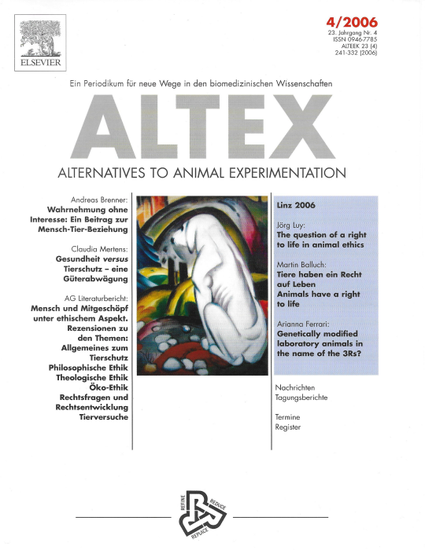
Article
Cancerous Contradictions: The Mis-Regulation of Human Carcinogens Based on Animal Data
Experimentation Collection
Document Type
Article
Publication Date
1-1-2006
Disciplines
Abstract
The regulation of human exposures to potential carcinogens constitutes society’s most important use of animal carcinogenicity data. However, for environmental contaminants of greatest U.S. concern, we found that in most cases (58.1%; 93/160) the U.S. Environmental Protection Agency (EPA) considered the animal data inadequate to support a classification of probable human carcinogen or noncarcinogen.
The World Health Organisation’s International Agency for Research on Cancer (IARC) is a leading international authority on carcinogenicity assessments. For chemicals lacking human exposure data (the great majority), IARC classifications of identical chemicals were significantly more conservative than EPA classifications (p
Citation Information
Knight, A., Bailey, J., & Balcombe, J. (2006). Cancerous contradictions: The mis-regulation of human carcinogens based on animal data. ALTEX, 23(S), 445-449.

In compliance with the publisher’s copyright and archiving policies, this is a post-print version of the document. Post-print materials contain the same content as their final edited versions, but are not formatted according to the layout of the published book or journal.
* Summarised from the poster Animal carcinogenicity studies: poor human predictivity by Andrew Knight, Jarrod Bailey and Jonathan Balcombe, which received the Animal Welfare Poster Award from Deutscher Tierschutzbund (the German Animal Welfare Federation) at the 5th World Congress on Alternatives and Animal Use in the Life Sciences, Berlin, 25 August 2005. Reproduced with permission from the complete paper: Knight, A., Bailey, J., Balcombe, J. (2006). Animal carcinogenicity studies: 1. poor human predictivity. Alternatives to Laboratory Animals 34(1), 19-27.